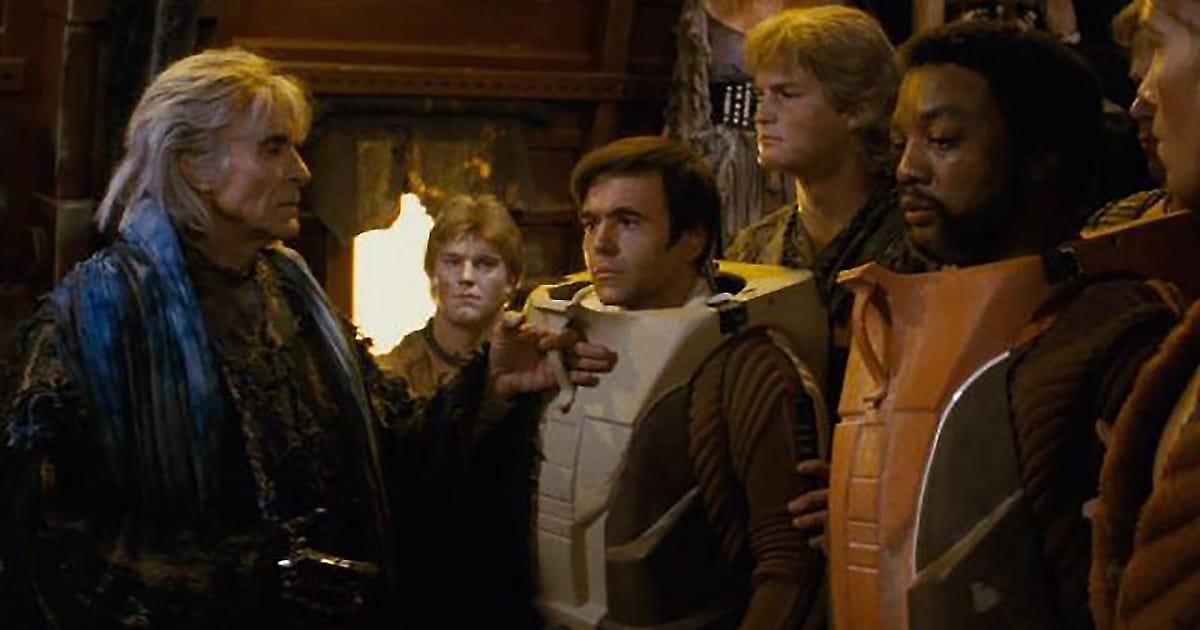Khan's Massive Plot Hole
The second, and best, Star Trek movie has a massive plot hole that had lots of Trekkies debating.

How exactly did Khan remember Pavel Chekov's face when Chekov wasn't even born yet? (Technically, he was born, but he hadn't been invented by the TV producers, which in Hollywood terms is basically the same thing.)
For those of you who aren't familiar with Star Trek - and if you're reading this article, that's about as likely as finding a Tribble that's on a diet - the original series featured a young Russian officer named Pavel Chekov, whose primary function was to insert the letter 'v' into words that didn't need it ("Nuclear vessels") and claim that everything was invented in Russia. ("The Garden of Eden vas located just outside Moscow.")
But here's where things get weirder than when William Shatner tried to sing "Rocket Man."
In the original episode "Space Seed," the Enterprise crew encounters Khan, a genetically engineered superhuman who, like many superhumans, apparently spent a lot of time working out his pectoral muscles while plotting world domination.
Khan is eventually defeated and exiled to a planet, but Chekov isn't in this episode at all. He's not even a background character getting vaporized in a red shirt. The young Russian was not added to the crew until season two.
Fast forward to "Star Trek II: The Wrath of Khan," and suddenly Khan not only knows Chekov, but remembers him so vividly you'd think Chekov had stolen his lunch money. "I never forget a face," Khan declares, which would be a lot more impressive if he was remembering someone who he'd met.
Khan's questionable recollection led to what scientists call "The Great Nerd Debate of 1982," which continues to this day in basements across America, fueled by Mountain Dew and an inexhaustible supply of theories posted on Reddit.
The most popular explanation is that Chekov was actually serving in the Enterprise's lower decks during "Space Seed," specifically in the bathroom, which leads us to actor Walter Koenig's famous "bathroom story."
According to Koenig —and I am not making this up— he jokes that Chekov had managed to anger Khan by making him wait an exceptionally long time for the bathroom. This is what we in the journalism business call "making lemonade out of plot holes."
Star Trek fans, instead of doing what normal people would do —pointing out the error and feeling smugly superior— have turned this goof into something approaching Talmudic scholarship. They've created elaborate theories involving parallel timelines, memory implants, and something called "temporal mechanics," which is just a fancy way of saying "wibbly-wobbly timey-wimey stuff" (Sorry, wrong franchise).
We must admire how Star Trek fans have elevated continuity error justification into an art form. It's like watching someone turn a typo into a doctoral thesis. These are people who can explain why the Klingons suddenly grew forehead ridges with the same passion that normal people reserve for arguing about sports teams or complaining about their neighbors' lawn ornaments.
And maybe that's the real message here. In the future, humanity won't just reach for the stars —we'll also reach for increasingly elaborate explanations about why that one guy remembered that other guy from that time they never actually met.
To quote another famous science fiction franchise: "These aren't the plot holes you're looking for."
Live long and proofread.

